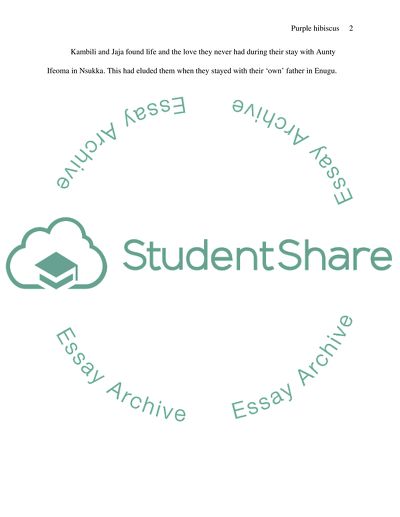The Story of Purple Hibiscus Essay Example | Topics and Well Written Essays - 250 words. Retrieved from https://studentshare.org/sociology/1574200-purple-hibiscus
The Story of Purple Hibiscus Essay Example | Topics and Well Written Essays - 250 Words. https://studentshare.org/sociology/1574200-purple-hibiscus.


